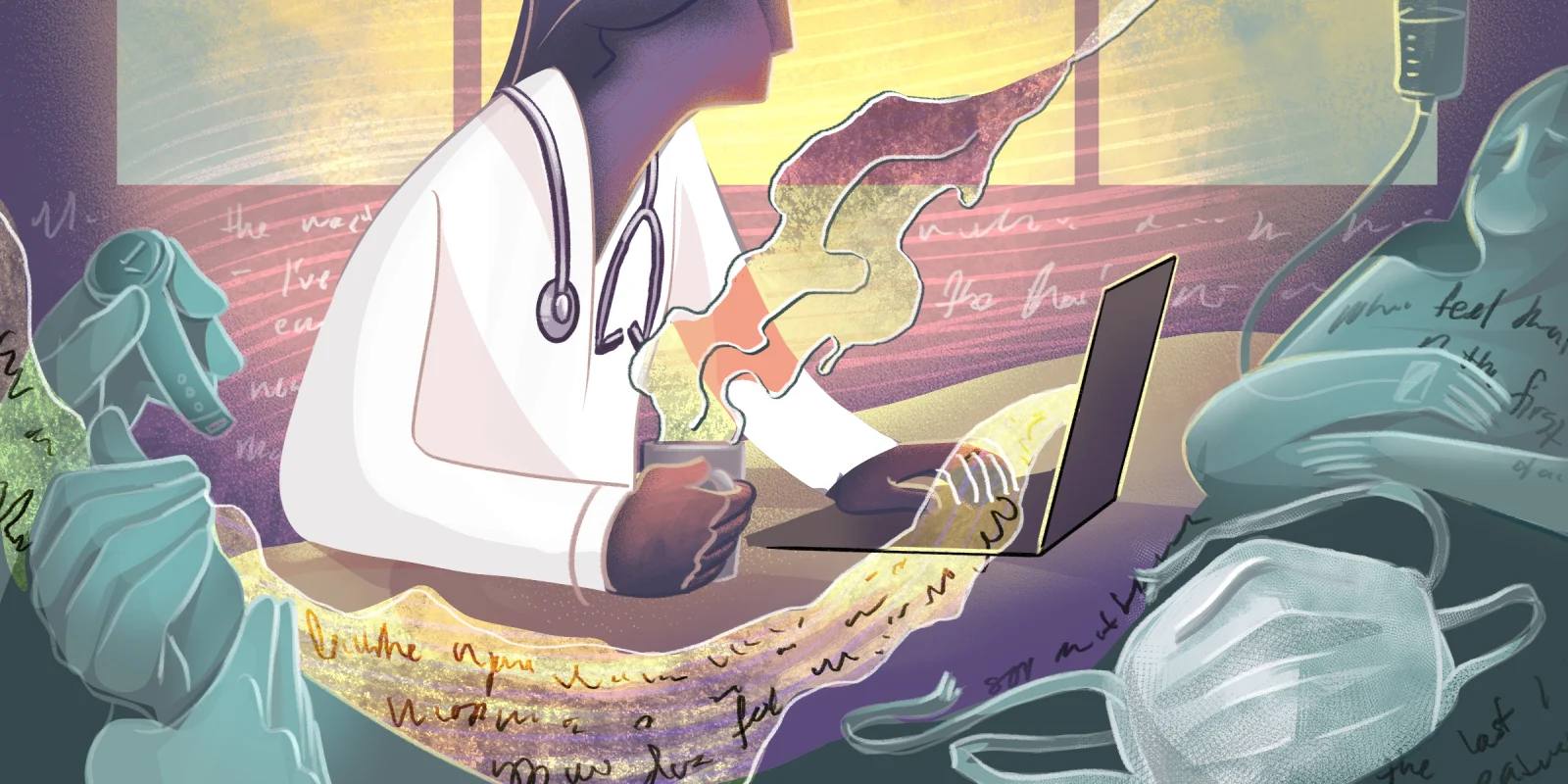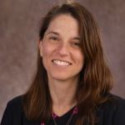It was 3 a.m. and I was wandering around Hollywood, just outside the perimeter of the hospital where I was a medical resident. Wearing my long white coat with Kelly green scrubs underneath, my arms were wrapped around myself for warmth as I meandered under the moon and the white-yellow effervescence of the lamplight halos. I was done tucking my patients in but my body was still revved up. Being outside in the darkness and the quiet helped me settle down from the sensations pulsing through me. Feelings that, at the time, were hard to name.
What words could elicit the relief, the charge, of successfully converting a patient’s arrhythmia to a normal heartbeat after plunging a thin medicated needle into an intravenous sheath? Or the solemn stirring in my chest during a visit with a graying nurse undergoing chemotherapy treatments? Or the heavy honor of accompanying a father with deep brown eyes and a faltering heart through the process of accepting that life was too short to spend in the hospital? What description was adequate to encapsulate the profound effect of interactions which instantly bind patient and physician as we address what fundamentally marks our shared humanity: our existence in ever vulnerable bodies?
But there came a point when after some medical issues of my own, I was no longer able to run from the ED, to the wards, to the ICU, caring for people at all hours of the night. Once at 4 a.m. at the bedside of a patient, my eyes grew heavy. Very heavy. I started inadvertently swaying. “Doctor! You’re falling asleep!” The pale woman in the bed exclaimed, exasperated. I realized my body couldn’t handle the night shift anymore.
I settled into the regular hours of outpatient work, sometimes seeing patients, but often overseeing newer clinicians. Meaningful interactions with patients and colleagues ensued. I was growing in my ability to care for both in a way that felt authentic and effective. But something was missing. And in order to figure out what it was, I had to finally put words to that feeling that had gripped me for all those years of practicing medicine in the hospital, the feeling I felt outside in the darkness.
I thought back to the decades hunched beside frightened patients in hospital rooms, or collaborating with interdisciplinary teams on patients with life and death situations under the ever-bright lights of the ICU, or slouched on the floor of auditoriums listening to lectures that kept my mind sharp, or embracing an emotionally flattened colleague. Looking back at all of these moments, I feel it even now in my chest: a rushing tide, a mix of anticipation, terror, and awe. And the word that emerges, that comes closest to encapsulating what I felt above all is wonder. According to the OED, wonder is “a feeling of surprise mingled with admiration, caused by something beautiful, unexpected, unfamiliar, or inexplicable.” That was it. That’s what pulled me outside during my graveyard shifts — not because I wanted to escape, but because it was so moving that it rocked me and I needed to find my bearings. Being out under the stars was like popping a valve to allow my pulsating energy to be moderated by something bigger than myself.
I loved my new work in the clinic, but I missed that feeling: the sense of being so moved that I needed to find a way to exhale.
I’m not the first to study and facilitate narrative medicine sessions to describe what happens in the room as some kind of “magic.” Like wonder, what tends to emerge are “unexpected,” “beautiful,” and “unfamiliar” connections. Ever since my first online class during the pandemic, I have experienced feelings similar to what I felt when caring for patients at critical moments of their lives in the hospital. Narrative medicine workshops involve gathering with health care colleagues, collaboratively discussing artistic texts, and sharing writing we’ve done in response to prompts chosen “in the shadow of the text.” When we consider a poem, a work of visual art, or each other’s reflective writings, we don’t analyze — we respond. We ask questions like: What words or images stand out to you? What confuses you? Where are we? Where does this piece go? And, How does it make you feel?
Inevitably, what emerges from the starting place of the creative text, and the response to discussion points and prompts, is that we all go to different places, making unique and often emotional connections and associations with our lives with what we are taking in. Together, we construct a fuller picture and greater understanding of the vast array of human experiences that arise in the room, and by extension, in our work as people who care for others who exist in their own unique contexts. Through these workshops, we open our eyes and deepen our compassion for both our own feelings, which may live unacknowledged but just beneath the surface, and those of our colleagues and patients. The magic is found in the honesty in the room and the way we are transformed, moving forward with an enhanced awareness of ourselves and of others; both of which have been shown to lead to better well-being for practitioners, and better care for patients.
Although narrative medicine sessions don’t generally involve engaging with patients at critical moments of their lives, this work that focuses on deepening our ability to feel into and care for others brings me to a similar place of wonder. What is similar is the sense of coming into contact with the profoundly authentic aspects of ourselves, and others, as sentient humans. As often occurs with patients facing illness and mortality, participants in narrative medicine sessions tend to confront their needs, their hopes, and their fears — stripped bare of more mundane concerns when faced with a nurturing community, evocative art, and an invitation to reflect and create. And I realize it is this, these moments of intense human connection, seeming to occur on a whole different plane outside of the stress or humdrum of daily life, that bring me wonder and make my life feel complete.
When's the last time you felt a sense of wonder? Share in the comments.
Eve Louise Makoff, MD is an internal medicine and palliative care physician who practices narrative medicine, sings karaoke, and hangs out with her family and two dogs in her spare time.
Illustration by April Brust






